NBL teams are spending more than ever.
It's a sign of the growing expectation on the majority of the teams around the league to compete for a title; and, now that the Tasmania JackJumpers -- the NBL's newest franchise -- are champions, the pressure across the board should only grow.
The total spends of each NBL team from the 2023-24 season -- distributed to teams, obtained by ESPN, and confirmed by multiple sources -- shows a notable increase of money poured into roster construction compared to previous years. The JackJumpers had a jump in cash spend, which ultimately led to a championship, while the Perth Wildcats and Adelaide 36ers were once again among the top-three in expenditure, when it came to the total amount spent on their respective rosters.
The cash spend of each team is calculated after agent fees and non-cap exempt bonuses are paid. In order to achieve spends that are as close to the actual numbers as possible, the out-of-pocket value of each import was calculated by ESPN, using the real AUD-to-USD exchange rate instead of the league's fixed rate -- what the NBL uses to make its calculations -- while also taking into account the fact that teams cover Australia taxes and other incentives for those players. The aim was to calculate cash spends as approximate as the real numbers for each team, given the information provided.
For this exercise, we included an additional $100,000 to the cash spend of teams with Next Stars. The actual salary the teams paid for Next Stars players isn't known, so we've made their value uniform across the board for simplicity and consistency. The amount each team paid in luxury tax has been added to the cash spend totals.
While the total cash spends were calculated by ESPN to the most approximate value possible based on the information provided to teams, the cap spends listed below are the exact values distributed across the league. Going into the 2023-24 season, the salary cap was set at $1,820,245.40; a number that was exceeded by six teams: the Wildcats, 36ers, JackJumpers, Melbourne United, the Sydney Kings, and New Zealand Breakers.
The Wildcats paid the most luxury tax with $246,416, followed by the 36ers' tax bill of $152,840.90, then the JackJumpers' $133,169.22. League wide, a total of $697,621.64 was paid in luxury tax. Teams now have the opportunity to apply for additional funds from that subsidy total.
Four teams remained under the cap: the Illawarra Hawks, South East Melbourne Phoenix, Brisbane Bullets, and Cairns Taipans.
Below, we explain and analyse the mechanisms used by teams over the season to reduce their cap spend.
TOTAL SPEND FOR 2023-24 NBL SEASON
ANALYSIS
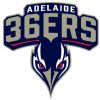
Adelaide 36ers
While the 36ers finished the 2023-24 season on a positive note and provided some legitimate hope for the future, a mixture of poor roster construction from the past and substandard recruiting processes going into the season led to one of the league's highest cash spends.
The signing of Jamaal Franklin is the obvious killer here, with the team signing someone the rest of the basketball world knew wasn't cut out for a league like the NBL; they cut him before the regular season began, and were forced to pay out a hefty portion of his contract. They'd replace him with Dejan Vasiljevic, who obviously didn't come cheap, but was a more reasonable high-level piece for the franchise to have on its books moving forward.
Between having three relatively expensive imports -- Franklin, Trey Kell, and Jacob Wiley -- then adding Vasiljevic to a local core that had the lingering big contracts of Mitch McCarron and Sunday Dech, it was always going to be a high spend year for the 36ers.
They were able to get their cap spend down by putting the marquee designation on McCarron and Vasiljevic.
The 36ers' cap spend ended up being $2,262,446.60, which was 24.29% -- $442,200.21 -- over the salary cap. They paid a luxury tax bill of $152,840.90.
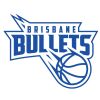
Brisbane Bullets
The Bullets are the team where we see one of the biggest contrasts between the cash spend and the cap spend.
Aron Baynes had the highest listed contract value in the NBL so it was a substantial amount of money for the Bullets to pay, but they were able to use a marquee designation on it to reduce the cap hit of the deal in a significant way. Less than 25 % of the value of Baynes' deal ultimately hit the cap.
Nathan Sobey was the other marquee for the Bullets, but he only would have been able to be under that designation for a portion of the season. A team is only allowed a total of four marquees and imports so, when the Bullets brought in Casey Prather, Sobey's contract would have hit the cap at his contract value for those games, instead of the cheaper marquee value.
Shannon Scott and Josh Bannan both missed periods of time with injury, lowering their respective cap hit on the team.
The Bullets finished with a cap spend of $1,701,134.77, which is 6.54% -- $119,110.64 -- under the salary cap.
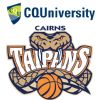
Cairns Taipans
As expected, the Taipans weren't given a substantial budget to play with for this season, so they finished at the bottom in both cash and cap spend.
In fact, they were extremely close to the salary floor, only clearing the $1,638,237.24 number by $6680.45. In order to hit that salary floor, the Taipans weren't even in a position to marquee their highest paid local, Bul Kuol, because they needed the extra cap spend to reach the threshold; they just absorbed the entire value of the contract on their cap.
Ultimately, the Taipans would finish with a cap spend of $1,644,917.69, which was almost 10% below the salary cap.
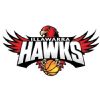
Illawarra Hawks
The Hawks were very intentional about their roster construction, with management given a clear directive from ownership to stay under the cap, sources told ESPN.
Their spend was relatively high because of the top-level imports on the books -- Tyler Harvey, Gary Clark, and Justin Robinson alone were more than half of their cash spend -- but utilised almost every mechanism available to them to stay under the salary cap.
The contracts of both Will Hickey and Biwali Bayles hit the cap at zero because of the Indigenous Player Rule, while Hyunjung Lee -- one of the team's highest-paid players -- also had the entirety of his contract left off their cap spend because he's a Special Restricted Player. The Special Restricted Player rule encourages teams to sign talent from a number of Asian countries -- Japan, China, India, South Korea, the Philippines, Taiwan, and Singapore -- with the incentive that the contract doesn't hit the cap at all.
The Hawks remained under the salary cap by just 0.57% -- $10,458.51 -- so, while the team was relatively healthy over the season, the few injuries they did suffer -- to Daniel Grida or Mason Peatling, for example -- saved them from going over the cap. The math indicates that, if Peatling didn't get injured, the Hawks would have exceeded the salary cap; it got that tight for this team's cap spend.
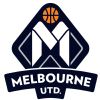
Melbourne United
United was another team that had a relatively high cash spend, but used the marquee mechanism in a crafty way over the season to reduce their cap spend.
The team went very local heavy, only opting for one import in Ian Clark, allowing them to marquee three players alongside the American. Clark, however, did miss six games during the regular season, which meant United could utilise the marquee rule for four local players for those games. It's exactly what they did, slotting all of Chris Goulding, Matthew Dellavedova, Jo Lual Acuil Jr., and Luke Travers into marquee designations for those games in which all were available to play, giving them a helpful amount of cap relief.
Getting into those third and fourth marquee numbers, however, means the cash spent on a team's top-end talent is quite high so, while it's a useful mechanism and did reduce United's cap spend, they still ultimately ended up in the 16%-31% tax bracket.
United would exceed the cap by 18.18% -- $2,151,084.79 -- so they had to pay a luxury tax of $97,160.49.
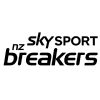
New Zealand Breakers
The Breakers were another team that, because of immense injuries, have a stark contrast between their cash spend and cap spend.
They ended up having to pay four imports -- including higher-salaried ones like Zylan Cheatham and Anthony Lamb -- as well as prominent locals in Will McDowell-White and Finn Delany. All of that top-end talent saw their cash spend rise.
Because of the injuries they suffered throughout the season, though, the cap spend was reduced. McDowell-White was a marquee and missed multiple games, so his cap hit was less than half his contract value. Justinian Jessup's contract barely hit the cap -- he suffered a long-term injury early in the season -- and both Cheatham and Lamb's dent on the cap spend was also reduced.
The Breakers would end up with a cap spend of $1,870,560.05, which was just 2.67% -- $50,314.64 -- over the salary cap. They paid $12,578.66 in luxury tax.
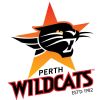
Perth Wildcats
The expectation was always that the Wildcats would more-than-likely top the league in both cash and cap spend, and that's exactly what happened.
The Wildcats have a significant amount of money committed to Bryce Cotton, while they made a splash in the offseason by signing Keanu Pinder, which wasn't a cheap endeavour. It's an expensive roster at the best of times, but both the cash and cap spend were made higher because the Wildcats decided to buy out the contracts of Mitch Norton and Todd Blanchfield in the offseason, so a portion of those deals are included in both totals.
Having an import on such a big contract is what hurts the Wildcats' cap spend, because there are no mechanisms to reduce it; it's a big reason why Cotton's citizenship push would be so important for the team. He only missed one game with injury, so the vast majority of his contract hits the cap.
The Wildcats got some cap relief by making Pinder their marquee, but still ended up with a cap spend of $2,407,957.41, which was 32.29% -- $587,712.01 -- over the salary cap. Being over the salary cap by that amount put the Wildcats in the 31%-50% tax bracket, which put their luxury tax bill at $246,416. All in all, the Wildcats ended up paying around double the salary cap for their 2023-24 roster.
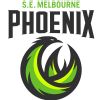
South East Melbourne Phoenix
There were teams that could point to different cap rules and mechanisms to explain how they were able to keep their cap spend down; look at the Bullets and Hawks, for example.
The Phoenix were able to reduce their cap spend in a significant way for an unfortunate reason: they had unprecedented injuries over the course of the season.
Mitch Creek as their marquee reduced his impact on the cap spend, but it was the injuries to Alan Williams, Gary Browne, Craig Moller, and Gorjok Gak that saw each of their respective cap hits drop significantly. Tyler Cook and Will Cummings didn't play full seasons in South East Melbourne, and even the latter's replacement, Abdel Nader, missed some games, putting him on the long list of players who were able to minimise their impact on the Phoenix's cap spend by not playing.
The bulk of the Phoenix's team spend went to those imports and Creek, but the team was able to avoid spilling over the salary cap because of those injuries.
The Phoenix would ultimately end up with a $1,778,641.12 cap spend, which was 2.23% -- $40,604.28 -- under the salary cap.
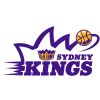
Sydney Kings
The Kings went all out of their high-level imports for this season -- Jaylen Adams and DJ Hogg -- so that's the primary thing that elevated both their cash and cap spend.
Hogg missed a good portion of the season with lingering injuries so his cap hit was significantly reduced, but, an import of Adams' level -- who remains healthy -- is always going to make a sizeable dent in a team's cap spend, because, like Cotton, there are no mechanisms to reduce it.
The team was able to marquee Jonah Bolden to ever so slightly reduce his cap hit.
The Kings finished with a cap spend of $2,042,070.89, which was 12.19% -- $221,825.49 -- over the salary cap. They paid $55,456.37 in luxury tax.
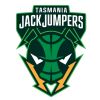
Tasmania JackJumpers
The JackJumpers were one of the league's most prolific spenders for the 2023-24 season, and it ultimately paid off with a championship.
A good portion of the team's spend was on its three imports -- Milton Doyle, Jordon Crawford, and Marcus Lee -- meaning they could only marquee one player: Will Magnay. The JackJumpers were also largely healthy over the course of the season, so they weren't able to get much cap relief, relative to other teams, from players being inactive. That elevated their cap spend and, in turn, their luxury tax bill.
The cap spend of the JackJumpers ended up being $2,223,102.24, with was third in the NBL. The team was over the cap by 22.1% -- $402,856.84 -- which gave them a $133,169.22 tax bill.
